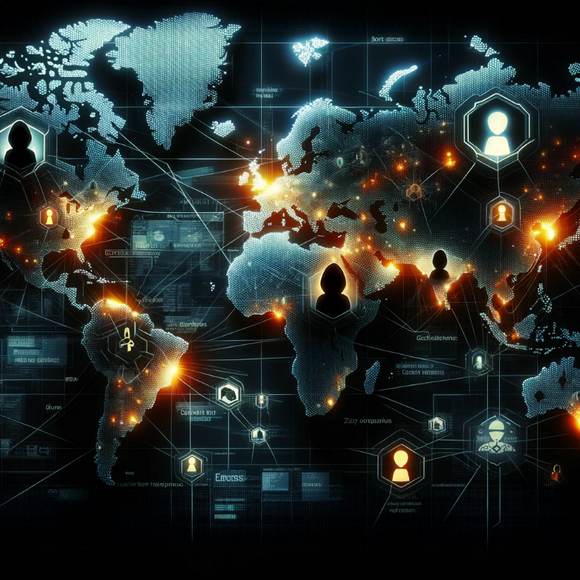BLOG


The Shadowy World Of Dark Economics: Does Ransomware Pay?
In the intricate web of global economics, there lies a shadowy fringe dominated by cybercriminals, leveraging technology to orchestrate financial crimes. Among these, ransomware attacks represent a particularly nefarious strand. These attacks involve hackers seizing control of personal or corporate data, only releasing their grip in exchange for hefty ransoms. But does this dark approach to economics pay off for the perpetrators? And at what cost does it come to society?
Ransomware attacks have proven to be alarmingly lucrative for cybercriminals. The model is straightforward: infect computers or networks with malicious software to encrypt data, then demand payment for decryption keys. The simplicity and directness of this model, combined with the often-critical nature of the seized data, frequently compel victims to pay up.
Financially, for attackers, the returns can be substantial. Reports from cybersecurity firms have highlighted that ransom payments have reached into the millions, with the average cost of a ransomware breach including downtime, manpower, device cost, network cost, lost opportunity, and ransom paid—spiralling into even greater figures.
From an economic standpoint, whether to pay the ransom is a complex decision. For many businesses, the cost of downtime and lost data far exceeds the ransom demanded, making payment seem like the lesser of two evils. However, this creates a dangerous precedent and fuels the ransomware economy, encouraging more attacks.
Moreover, paying the ransom does not guarantee data recovery. There's always the risk that the attackers may not provide the decryption key or that the decryption process itself may not be successful. This uncertainty adds another layer of risk to the already fraught decision-making process.
The impact of ransomware extends far beyond the financial damages incurred by the victims. There are significant societal costs as well. Critical infrastructure and public services have become targets, with healthcare systems, schools, and government agencies all falling prey to these attacks. The disruption to these services can have devastating effects, from jeopardizing patient care in hospitals to interrupting the education of students.
Moreover, the resources diverted to address ransomware incidents — from IT security enhancements to law enforcement investigations — represent a substantial investment that could be allocated towards more productive societal needs.
Combatting the ransomware menace requires a multifaceted approach. Strengthening cybersecurity measures is paramount. This includes regular software updates, comprehensive backup strategies, and employee training on recognizing phishing attempts. On a broader scale, international cooperation is crucial in tracking and prosecuting cybercriminals, as ransomware knows no borders.
Public awareness and education play a critical role as well. By understanding the risks and recognizing the importance of cybersecurity, individuals and organizations can become less susceptible to attacks.
While ransomware can provide a quick payday for cybercriminals, the broader implications of these attacks are profound. The economic viability of ransomware is sustained only by the willingness of victims to pay ransoms, a cycle that must be broken to undermine the foundation of this dark economy. As we navigate this digital age, the collective challenge will be to fortify our defences, both technically and educationally, to illuminate and dismantle the shadowy realms of dark economics.





